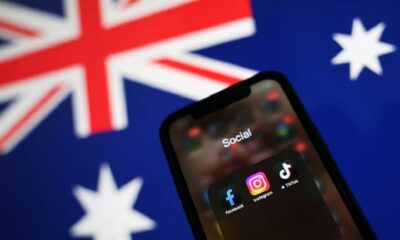Science & Technology
Volunteers work to save nearly 100 beached whales in Australia

Volunteers worked frantically on a second day Wednesday to save dozens of pilot whales that have stranded themselves on a beach in Western Australia, but more than 50 have already died.
Nearly 100 long-finned pilot whales stranded themselves Tuesday on the beach by the city of Albany, on the southern tip of Western Australia, south of Perth, Associated Press reported.
They were first spotted swimming Tuesday morning near Cheynes Beach east of Albany. As the day progressed, the pod began moving closer to the beach, sparking the concern of conservation officers. By 4 p.m., a large stretch of the shoreline was covered in beached whales.
Reece Whitby, Western Australia’s environment minister, said it was particularly frustrating because it’s not known why the phenomenon occurs.
“What we’re seeing is utterly heartbreaking and distressing,” he told reporters. “It’s just a terrible, terrible tragedy to see these dead pilot whales on the beach.”
Fifty-two whales had perished, and volunteers are doing what they can to try and save 45 still alive, he said.
“People are committed to doing what they can to save as many whales as they can,” Whitby said.
Western Australia state’s Department of Biodiversity, Conservation and Attractions set up an overnight camp to monitor the whales.
Peter Hartley, a manager from the department, told the Australian Broadcasting Corp. that the volunteers were trying to get the living whales back into the water and encourage them to swim away.
“We are optimistic that we will save as many as we can,” Hartley said.
The team tasked with helping the whales includes Perth Zoo veterinarians and marine fauna experts. They have been using specialized equipment, including vessels and slings.
Hundreds of volunteers also offered to help — so many that officials said they had enough registered volunteers and urged other members of the public to stay away from the beach.
Drone footage released by the department showed the whales clustering and forming into a heart shape before stranding themselves on the beach, AP reported.
“This is just an amazing event,” Joanne Marsh, the owner of the Cheynes Beach Caravan Park told the ABC. “We’ve never seen anything quite like this.”
Wildlife experts said the unusual behavior of the whales could be an indicator of stress or illness within the pod. Pilot whales are highly social animals and often maintain close relationships with their pods throughout their lives.
Macquarie University wildlife scientist Vanessa Pirotta said the drone footage could suggest the whales had become disoriented, although she said the exact reasons for mass strandings remain unclear.
“The fact that they were in one area very huddled, and doing really interesting behaviors, and looking around at times, suggests that something else is going on that we just don’t know,” she said.
She said she thought it unlikely the whales were trying to avoid a predator.
“They often have a follow-the-leader type mentality, and that can very much be one of the reasons why we see stranding of not just one but many,” Pirotta added.
The incident is reminiscent of one in September, in which some 200 pilot whales died after a pod stranded itself on the remote west coast of Tasmania, off Australia’s southeastern coast.
The following month, nearly 500 pilot whales died after stranding themselves on two remote beaches in New Zealand.
Science & Technology
‘Massive cyberattack’ brings down Elon Musk’s X
Digital Trends reported Tuesday that there are reports suggesting X is still having issues
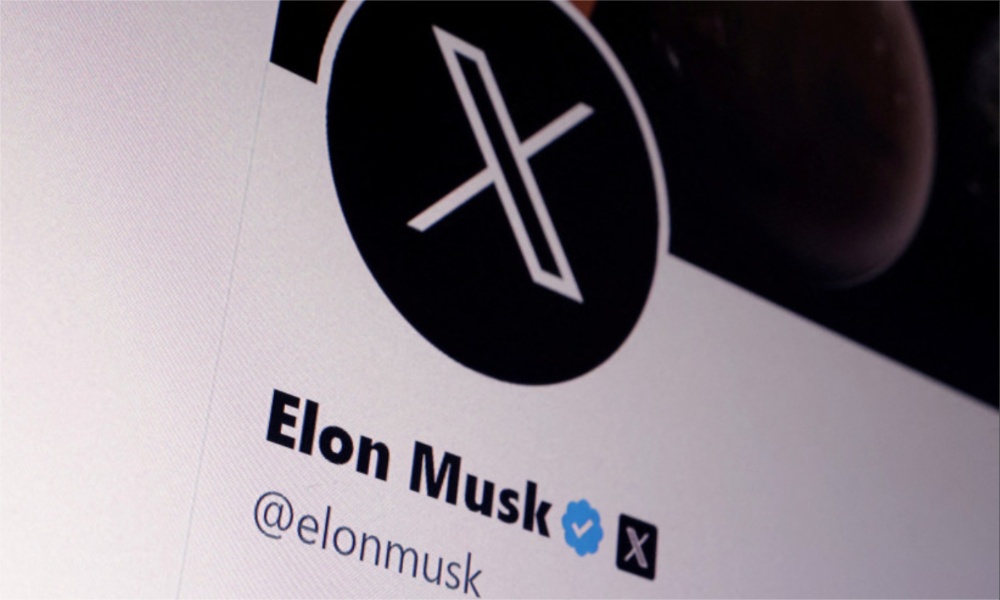
Social media platform X went down intermittently on Monday, with owner Elon Musk blaming an unusually powerful cyberattack.
“We get attacked every day, but this was done with a lot of resources. Either a large, coordinated group and/or a country is involved,” Musk said in a post on X on Monday.
He did not clarify exactly what he meant by “a lot of resources” and his comments drew skepticism from cybersecurity specialists, who pointed out that attacks of this nature — called denials of service — have repeatedly been executed by small groups or individuals.
X faced intermittent outages, according to Downdetector, Reuters reported.
Digital Trends meanwhile reported Tuesday that there are reports suggesting X is still having issues.
Internet industry experts have said X was hit by several waves of ‘denial of service’ throughout Monday.
Musk said in an interview with Fox Business Network’s Larry Kudlow the cyberattack came from IP addresses originating in the Ukraine area.
An industry source told Reuters he disputed Musk’s account, saying that large chunks of the rogue traffic bombarding X could be traced back to IP addresses in the United States, Vietnam, Brazil and other countries, and that the amount of rogue traffic coming directly from Ukraine was “insignificant.”
In any case, denial of service attacks are notoriously hard to trace back to their authors and the IP addresses involved rarely provide any meaningful insight into who was behind them, Reuters reported.
Musk has joined U.S. President Donald Trump, whom he serves as an adviser, in criticizing Ukraine’s continued efforts to fight off a Russian invasion.
Musk said on Sunday that Ukraine’s front line “would collapse” without his Starlink satellite communications service, though he said he would not cut off Ukraine’s access to it.
Science & Technology
NASA says ‘city killer’ asteroid has a 3.1 % chance of striking Earth in 2032
Despite the rising odds, experts say there is no need for alarm
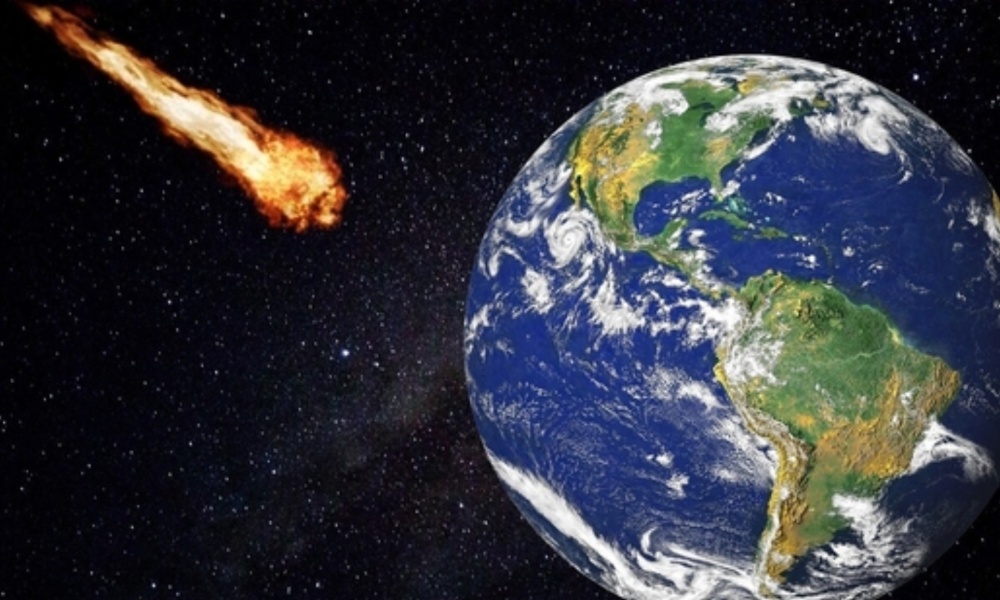
An asteroid that could level a city now has a 3.1-percent chance of striking Earth in 2032, according to NASA data released Tuesday — making it the most threatening space rock ever recorded by modern forecasting.
Despite the rising odds, experts say there is no need for alarm. The global astronomical community is closely monitoring the situation and the James Webb Space Telescope is set to fix its gaze on the object, known as 2024 YR4, next month.
“I’m not panicking,” Bruce Betts, chief scientist for the nonprofit Planetary Society told AFP.
“Naturally when you see the percentages go up, it doesn’t make you feel warm and fuzzy and good,” he added, but explained that as astronomers gather more data, the probability will likely edge up before rapidly dropping to zero.
2024 YR4 was first detected on December 27 last year by the El Sauce Observatory in Chile.
Astronomers estimate its size to be between 130 and 300 feet (40–90 meters) wide, based on its brightness. Analysis of its light signatures suggests it has a fairly typical composition, rather than being a rare metal-rich asteroid.
The International Asteroid Warning Network (IAWN), a worldwide planetary defense collaboration, issued a warning memo on January 29 after the impact probability had crossed one percent. Since then, the figure has fluctuated but continues to trend upward.
NASA’s latest calculations estimate the impact probability at 3.1 percent, up from 1.6 percent last month, with a potential Earth impact date of December 22, 2032.
Richard Moissl, head of the European Space Agency’s planetary defense office, which puts the risk slightly lower at 2.8 percent told AFP that this “is not a crisis at this point in time. This is not the dinosaur killer. This is not the planet killer. This is at most dangerous for a city.”
If the risk rises over 10 percent, IAWN would issue a formal warning, leading to a “recommendation for all UN members who have territories in potentially threatened areas to start terrestrial preparedness,” explained Moissl.
Unlike the six-mile-wide (10-kilometer-wide) asteroid that wiped out the dinosaurs 66 million years ago, 2024 YR4 is classified as a “city killer” — not a global catastrophe, but still capable of causing significant destruction.
Its potential devastation comes less from its size and more from its velocity, which could be nearly 40,000 miles per hour if it hits.
If it enters Earth’s atmosphere, the most likely scenario is an airburst, meaning it would explode midair with a force of approximately eight megatons of TNT — more than 500 times the power of the Hiroshima bomb.
But an impact crater cannot be ruled out if the size is closer to the higher end of estimates, said Betts.
The potential impact corridor spans the eastern Pacific, northern South America, the Atlantic, Africa, the Arabian Peninsula, and South Asia — though Moissl emphasized it is far too early for people to consider drastic decisions like relocation.
The good news: there’s ample time to act.
NASA’s 2022 DART mission proved that spacecraft can successfully alter an asteroid’s path, and scientists have theorized other methods, such as using lasers to create thrust by vaporizing part of the surface, pulling it off course with a spacecraft’s gravity, or even using nuclear explosions as a last resort. — Agence France-Presse
Science & Technology
Panjshir will soon be connected to national fiber optic network
The statement said that this project covers a 36-kilometer route from Gulbahar to Bazarak, and the districts of Shatal, Anaba and Rukha will also benefit from fiber optic services.
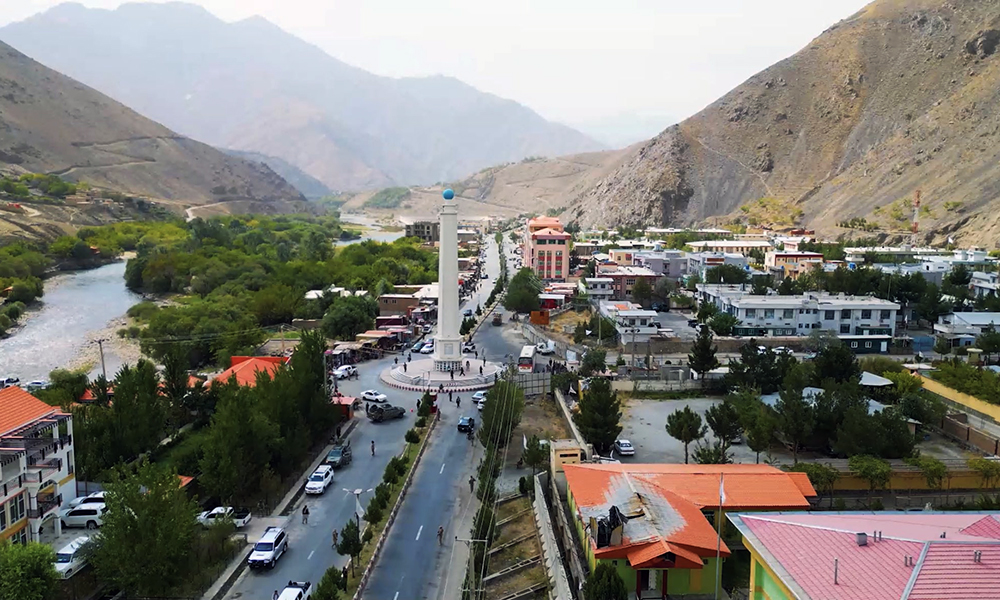
The Panjshir provincial media office said in a statement on Wednesday, February 1 that practical work was to connect the province to fiber optic will begin within the next month.
The statement said that this project covers a 36-kilometer route from Gulbahar to Bazarak, and the districts of Shatal, Anaba and Rukha will also benefit from fiber optic services.
The statement added that the project is being implemented by Afghan Wireless, Afghan Telecom and ICG companies as a result of the efforts of the Panjshir provincial administration and the special attention of the leadership of the Ministry of Communications and Information Technology of the Islamic Emirate of Afghanistan.
-

 Business4 days ago
Business4 days ago36 mining contracts inked over the past year: Mines ministry
-
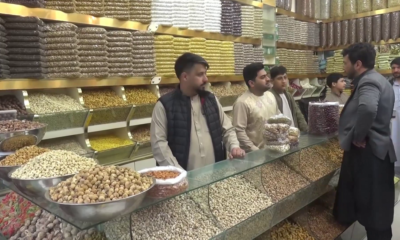
 Latest News4 days ago
Latest News4 days agoDried fruit market in Herat booms ahead of Eid-al-Fitr
-
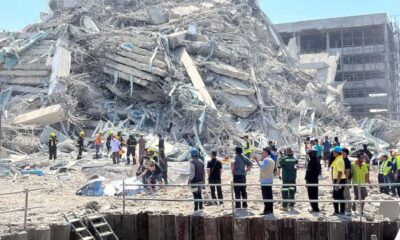
 Regional4 days ago
Regional4 days agoPowerful quake in Southeast Asia kills several, Myanmar declares state of emergency
-

 Latest News4 days ago
Latest News4 days agoUS may ask for military equipment left behind in Afghanistan: Trump
-

 International Sports4 days ago
International Sports4 days agoLucknow’s six-hitting machine Pooran justifies top order slot
-

 Latest News3 days ago
Latest News3 days agoMore than 70,000 Afghans returned home in third week of March: IOM
-

 Latest News4 days ago
Latest News4 days agoNegotiations with Afghanistan are the only way forward: Pakistan’s ex-PM Khan
-

 Health3 days ago
Health3 days agoGlobal organizations warn of health crisis due to aid cuts in Afghanistan








